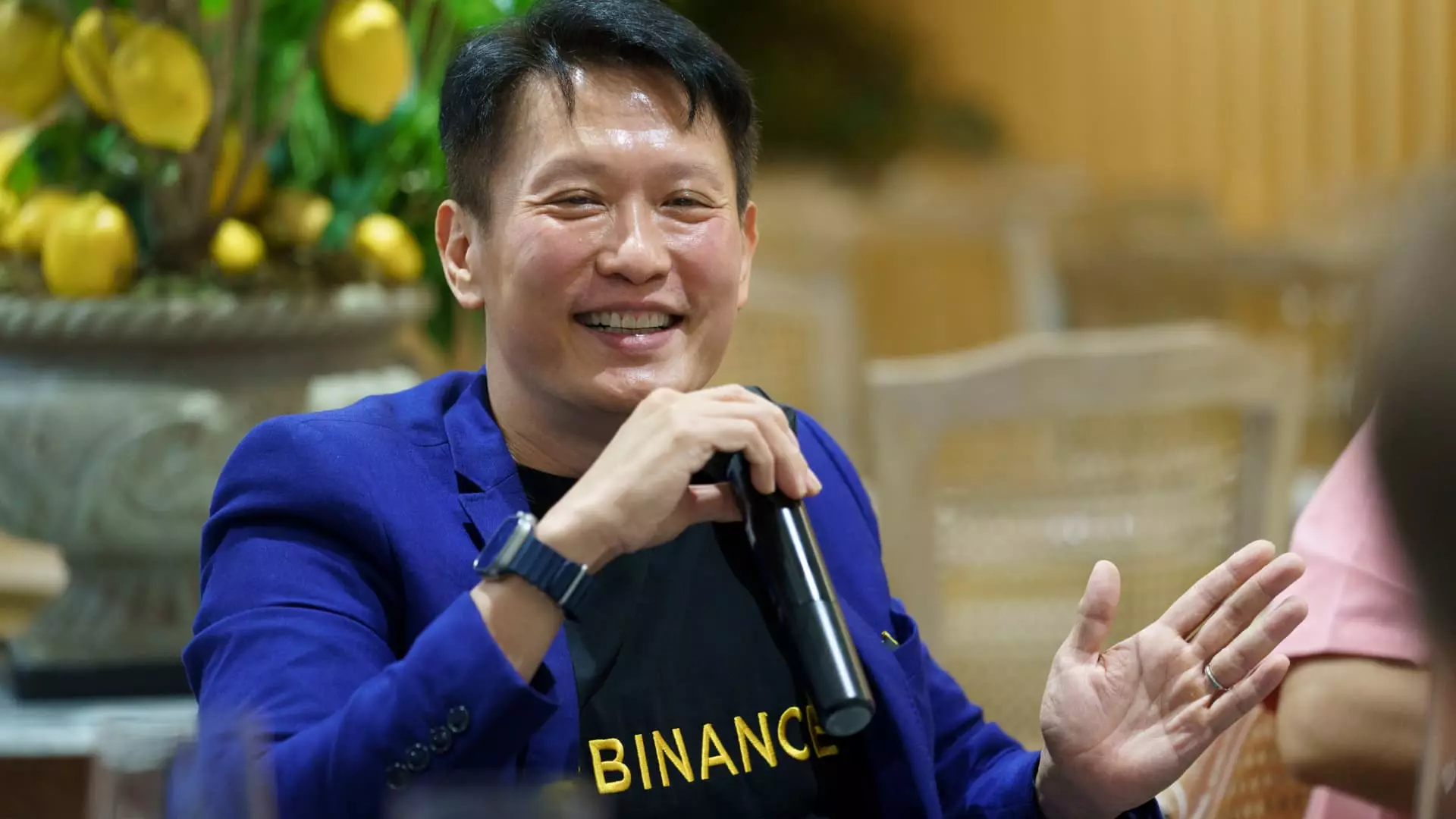The cryptocurrency industry has long been synonymous with volatility—not just in terms of market value but also in the regulatory environment shaping its future. Richard Teng’s recent commentary on the Trump administration as a “fantastic reset” for cryptocurrencies embodies this evolving landscape. Under the Trump administration, Teng observes, the political climate has shifted dramatically from stringent regulatory scrutiny to a more favorable environment for digital assets. This newfound acceptance could be pivotal for a sector that once found itself under the harsh glare of regulators, particularly during the Biden administration. The stark contrast highlights how political change can directly influence the burgeoning world of cryptocurrency, impacting both operations and brand perception.
Teng’s optimistic view signals not only a return to form for Binance but a broader opportunity for the industry. Under the previous administration, entities like Binance faced unforgiving repercussions, including multi-billion dollar settlements and operational upheaval following controversies that led to the ousting of its founder, Changpeng Zhao. The political about-face suggests that cryptocurrency could finally escape the shadows of its earlier struggles, ushering in an era of growth and exploration.
Binance’s Strategic Partnerships and Market Position
Recent developments suggest that Binance is exploring strategic partnerships that would solidify its influence in Washington. Reports of potential financial stakes from the Trump family and talks with World Liberty Financial indicate that Binance is positioning itself as a key player in the evolving regulatory landscape. Teng’s comments hint at a calculated strategy aimed at re-establishing Binance’s status, not merely as a market leader but as a political ally in a domain where relationships matter. Collaborations with institutions linked to the Trump family could serve as a linchpin in navigating future regulatory challenges, while launching a dollar-pegged stablecoin could offer critical leverage in the stablecoin marketplace.
Yet, the irony remains palpable: a company that previously stood as a regulatory pariah is now courting the very political figures that once viewed it with contempt. This shift in strategy reflects a proactive pivot away from past mistakes while acknowledging the importance of compliance—a realization that Teng openly admits has been central to Binance’s evolution.
Compliance: A Double-Edged Sword
Binance’s aggressive strides towards compliance represent an ambitious attempt to get ahead of regulatory challenges. With over 1,300 compliance professionals now on staff, Teng acknowledges the company’s past missteps in this area as they tackle both local and international scrutiny. This investment in compliance reflects an understanding that in a rapidly evolving digital landscape, adhering to laws and regulations is imperative for sustainable growth.
However, Binance’s recent entanglements—most notably with regulators in Nigeria following the imprisonment of key executives—paint a more complicated picture. While Teng insists on the company’s commitment to cooperating with governments, the treatment of Binance employees raises questions about its operational practices and the socioeconomic realities of conducting crypto business globally. These ongoing legal complexities could undermine its efforts at compliance and present a serious obstacle in its goal of repositioning itself in a more favorable light.
Navigating Competition: The Binance Edge
While Binance faces challenges both from regulatory scrutiny and emerging competitors, its domain leadership appears resilient. With a reported global market share exceeding 40%, the platform retains an enviable position in the marketplace. Teng dismisses concerns regarding rivals like Coinbase, arguing that exchange-traded funds (ETFs) act as gateways into crypto trading rather than direct competitors. By emphasizing the potential for users to migrate from ETFs to cryptocurrency platforms, he reaffirms Binance’s capacity to capture and retain user interest.
Furthermore, recent institutional investments—including a staggering $2 billion from the Emirati state-owned investment firm MGX—underscore the confidence that various stakeholders have in Binance’s trajectory. Here, Teng cleverly intertwines the power of artificial intelligence into Binance’s operational paradigm, signaling that technological advancements will play an indispensable role in the company’s future and operational integrity.
Challenges Ahead: Balancing Innovation with Responsibility
While Binance’s future appears promising, the path is fraught with hurdles. Teng openly acknowledges sleepless nights focused on security, compliance, product innovation, and potential mergers and acquisitions. Such responsibilities underscore the nuanced balance required in an industry characterized by unpredictability and rapid evolution. As Teng leads Binance into this new political and operational arena, the company’s ability to innovate while maintaining ethical standards will be scrutinized as never before.
The potential for disruption in the cryptocurrency space remains significant, and Binance’s proactive stance allows it to navigate this unpredictability with a sense of purpose. As the industry continues to evolve, the interplay between governance, compliance, and technology will determine who ultimately emerges as the true leader in the burgeoning world of digital assets.

